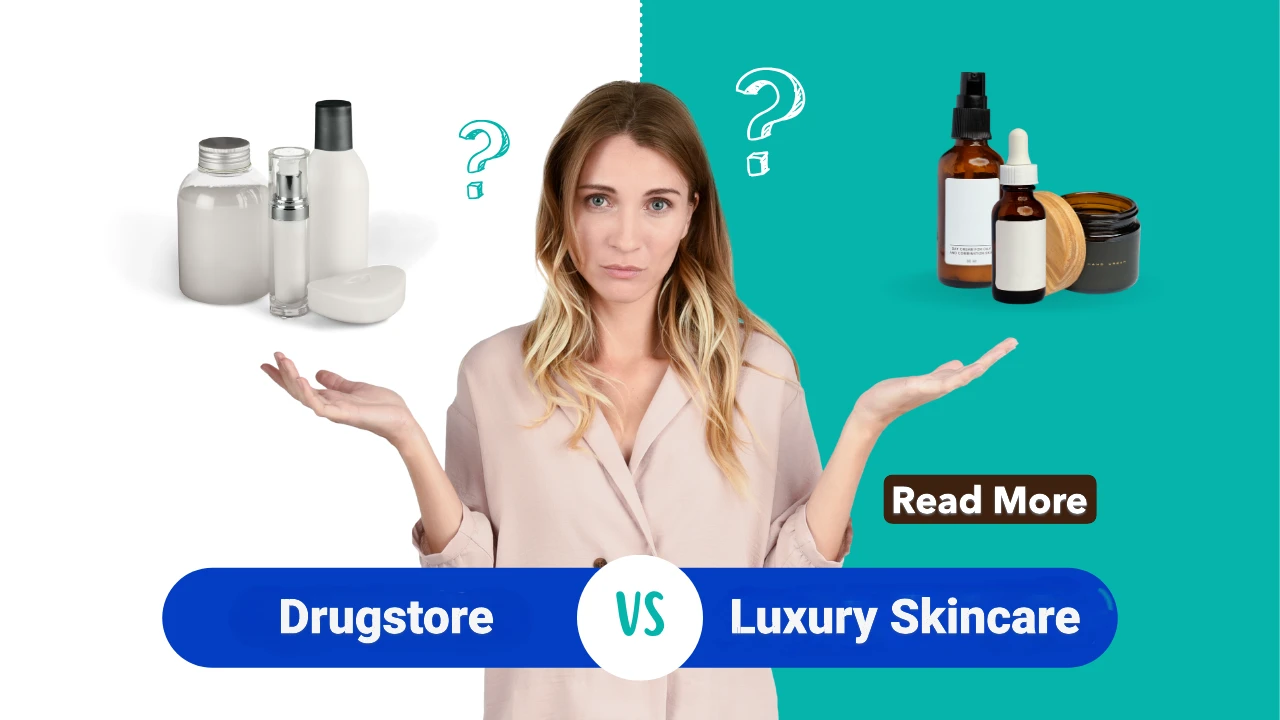Drugstore vs. Luxury Skincare: Key Differences in Ingredients, Pricing, and Effectiveness
Drugstore vs. Luxury Skincare: Key Differences in Ingredients, Pricing, and Effectiveness
When it comes to choosing skincare products, the shelves are lined with options ranging from budget-friendly drugstore brands to high-end luxury formulations. But is the price tag a true indicator of quality? Let’s break down the key differences between drugstore and luxury skincare in terms of ingredients, pricing, and overall effectiveness.
1. Ingredients: Similar Actives, Different Extras
Surprisingly, both drugstore and luxury skincare products often contain many of the same active ingredients, such as hyaluronic acid, retinol, niacinamide, and vitamin C. These actives are what truly impact the skin’s appearance and health.
However, luxury brands tend to include additional components like botanical extracts, proprietary complexes, or rare ingredients that are marketed as exclusive. These might enhance the texture, scent, or absorption of the product, but don’t always provide superior results. Meanwhile, drugstore brands may focus more on proven, science-backed formulations without the added frills.
That said, luxury brands often invest more in research and development, which can lead to innovative delivery systems or formulations that feel more refined on the skin.
2. Pricing: Paying for Packaging and Perception
One of the biggest differences lies in the cost. Luxury skincare can cost five to ten times more than drugstore alternatives. But why?
Much of the luxury price tag comes from premium packaging, branding, marketing campaigns, and the prestige associated with the brand. Sleek glass jars, gold accents, and celebrity endorsements can drive up costs significantly—none of which impact the efficacy of the product itself.
Drugstore products, on the other hand, are mass-produced and sold at higher volumes, keeping costs low. Their packaging may be simpler, but the savings are often passed on to the consumer.
3. Effectiveness: Results May Vary
When it comes to performance, price doesn’t always equal effectiveness. Many drugstore products deliver excellent results and are recommended by dermatologists. In fact, some brands like CeraVe, Neutrogena, and La Roche-Posay are widely praised for their affordability and science-based formulations.
Luxury products may feel more elegant, smell more pleasant, or offer a spa-like experience, which some people find boosts their skincare ritual and consistency. But clinically, the differences in results may be minimal—especially if both products contain the same actives.
However, in cases where luxury brands have invested in patented technologies or cutting-edge research, you might see noticeable benefits. But these are the exceptions, not the rule.
Conclusion: What’s Right for You?
The best skincare product is the one that suits your skin type, addresses your concerns, and fits your budget. While luxury products may offer a more indulgent experience, drugstore skincare can be just as effective, especially if you're looking for clinically proven ingredients at a lower cost.
Ultimately, it’s about informed choices. Read ingredient lists, check reviews, and focus on what your skin actually needs—not just the label or price tag.

Related Blog
What Causes Oily Skin and Can It Be Managed Naturally? Exploring Root Causes and Gentle Solutions
Aug 2, 2025 by Admin
General
What Are the Signs That You Have Sensitive Skin? Key Symptoms to Help You Identify This Delicate Skin Type
Aug 1, 2025 by Admin
General